Obtaining
Obtaining is the process of acquiring or gaining something. In science, obtaining refers to the collection of data or materials through experiments, observations, or research. It is a crucial step in the scientific method as it involves gathering evidence and information to support or refute a hypothesis.
Methods of Obtaining in Science
- Experimentation: Conducting controlled experiments to collect data and test hypotheses.
- Observation: Using the senses or instruments to gather information about natural phenomena.
- Research: Reviewing existing literature, studies, and data to obtain information relevant to the investigation.
- Data Collection: Gathering measurements, observations, and other relevant information through various means.
Study Guide
When studying the concept of obtaining in science, it is important to understand the following key points:
- The significance of obtaining accurate and reliable data in scientific investigations.
- The different methods used for obtaining information, such as experimentation, observation, and research.
- How to design and conduct experiments to effectively obtain data that can be analyzed and interpreted.
- The ethical considerations involved in obtaining data, including the responsible treatment of research subjects and the proper use of existing information.
Understanding the process of obtaining in science is essential for conducting valid and meaningful research, and for drawing accurate conclusions based on evidence.
.◂Science Worksheets and Study Guides Sixth Grade. Plant reproduction
Study Guide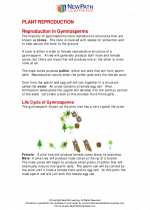 Plant reproduction
Plant reproduction  Activity Lesson
Activity Lesson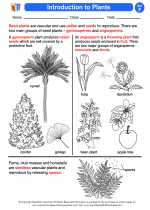 Introduction to Plants
Introduction to Plants  Worksheet/Answer key
Worksheet/Answer key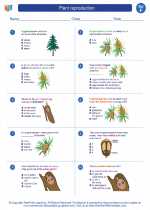 Plant reproduction
Plant reproduction  Worksheet/Answer key
Worksheet/Answer key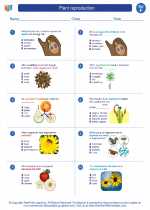 Plant reproduction
Plant reproduction  Worksheet/Answer key
Worksheet/Answer key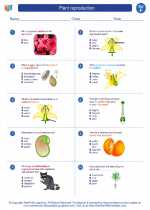 Plant reproduction
Plant reproduction  Vocabulary/Answer key
Vocabulary/Answer key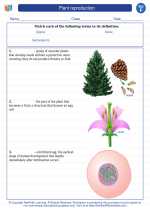 Plant reproduction
Plant reproduction 

 Activity Lesson
Activity Lesson
 Worksheet/Answer key
Worksheet/Answer key
 Worksheet/Answer key
Worksheet/Answer key
 Worksheet/Answer key
Worksheet/Answer key
 Vocabulary/Answer key
Vocabulary/Answer key

The resources above cover the following skills:
LIFE SCIENCE
From Molecules to Organisms: Structures and Processes
Students who demonstrate understanding can:
Use argument based on empirical evidence and scientific reasoning to support an explanation for how characteristic animal behaviors and specialized plant structures affect the probability of successful reproduction of animals and plants respectively.